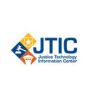This article is taken from the September 2019 issue of eTechBeat, published by the Justice Technology Information Center, a component of the National Law Enforcement and Corrections Technology Center System, a program of the National Institute of Justice, (800) 248-2742.
By Beck Lewis
TechBeat Magazine
Some weeks the calls seem to focus on bullying. During prom and homecoming seasons, more calls may come in about drinking and drugs. After a school shooting elsewhere in the country, there might be more about planned attacks. Whatever the topic, staff at the Maryland Center for School Safety take all tips to its new Safe Schools Maryland Tip Line seriously, moving them through a process that ensures they will receive swift attention from the appropriate administrator or law enforcement agency.
Launched on October 3, 2018, in response to a directive from Gov. Larry Hogan following the shootings at Marjory Stoneman Douglas High School in Florida and Great Mills High School in Maryland, the Safe Schools Maryland Tip Line can be accessed by students, parents, school staff and the community through a phone number (1-833-MD-B-SAFE), the Internet and a free mobile app (Safe Schools MD iOS/Android). Public schools in all 24 Maryland counties have signed on to the tip line, and Maryland Center for School Safety staff are working to engage the state’s private schools as well.
“It’s easier for school systems to sign-up with the statewide tip line than establish one of their own, and it saves them money over having their own tip line,” says Emily Allen Lucht, the center’s communications and media specialist. “It also helps make connections if a student lives in one county but knows about something happening in another county.”
Using the state tip line also guarantees quicker access to a wider array of services, and it saves the school systems money since they don’t have to contract with vendors to provide services such as IT and tip monitoring. Trained tip takers staff the state’s line, reaching out to designated law enforcement or administrative contacts in each area.
School Safety Analyst Sandra Caldwell notes that in a number of cases, students have reported concerns about friends who were battling depression or other emotional issues, and thanks to the tips, those students received the mental health services they needed. Other tips have enabled authorities to stop planned fights before they happen, and possibly to avert school shootings as well.
Lucht recalls a mother who came to the Maryland Center for School Safety exhibit at a conference to say her child was being bullied. Lucht showed her how to submit a tip and then tracked its progress from behind the scenes to ensure that the child has a safety plan in place for the 2019-2020 school year.
“If it’s a planned attack, the tip takers alert 911 and get things rolling right away. On tips that aren’t as urgent, they work with the school system,” Caldwell says.
Although that particular conference proved especially memorable, Lucht and Caldwell have put in plenty of time visiting similar conferences and conducting other outreach efforts to let schools know about the tip line. They have also made marketing materials available on the center’s website. Center staff is also working this summer to train safety partners in the state’s new Maryland Model School Resource Officer/School Security Employee Training Course.
“We didn’t go into this blindly; rather, we worked with our center advisory board and most importantly, with students and teachers to find the best way to reach out,” Lucht says. “We wanted to be sure we could connect with all students, not just those who have devices, and make sure we had well-rounded strategies because what works in an urban area might not work in a rural one. We’ve had students step up and offer feedback, and some of their creativity is mind blowing.”
An important feature built in to the system is the ability for two-way anonymous communication. Each tip is associated with a log-in ID number, rather than a telephone number or a person’s name, and if the submitter wants to follow up or add more information, they use the log-in number to maintain anonymity.
In addition to supplying feedback into the development of the tip line, Maryland schools and counties participate in a weekly conference call with the center to brainstorm and share ideas. Lucht says: “Safety is not just a school by school situation anymore. At the end of the day, it’s a nationwide effort to try to create safer schools and safer communities.”
To find out more, visit here.


